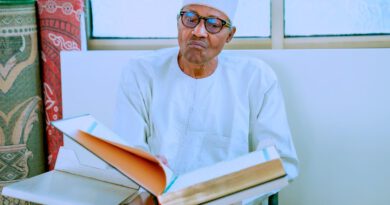FG should closely monitor distribution of N50,000 palliative grant as discrepancies hold sway in parts of the country
•By Taiwo Olapade
Since the removal of the fuel subsidy in Nigeria by the current administration led by President Bola Ahmed Tinubu about 398 days ago, the government at the federal, state, and local levels has initiated various measures under the guise of palliatives to cushion the effects of the policy.
The common word from the government is that the palliatives are distributed to ameliorate the sufferings of Nigerians, especially the less privileged and the most vulnerable.
Over a year down the line, it seems that every other Nigerian is now vulnerable due to the rising cost of food items, other basic essential needs, and the continued slide in the value of the naira.
Before the latest distribution of the N50,000 (Fifty Thousand Naira) grant per beneficiary in 774 Local Government Areas nationwide, the social intervention programs by the government at all levels in the past had attracted wide criticism due to the lack of data to showcase the beneficiaries.
A similar experience was the order of the day during the immediate past administration of President Muhammadu Buhari when the then Minister of Humanitarian Affairs and Disaster Management, Sadiya Umar Faruk, claimed that millions of Nigerians benefited from palliatives distributed while school children were fed during the lockdown when the entire world was ravaged by the COVID-19 pandemic.
Her predecessor in office, Dr. Betta Edu, took off from where Sadiya left it and demonstrated a high level of passion to produce a National Social Register for the country to show transparency and accountability of government spending but ran into trouble over alleged irregularities in the spending of several billions of naira belonging to the Ministry.
As mentioned earlier, most Nigerians are not of the view that palliatives and the conditional Cash Transfer were not distributed in the recent past by the Tinubu-led government. However, their demand is for a clear sincerity of purpose backed with a high level of integrity and fairness in the process. The case of Nigeria has become that of a popular saying that “He who comes to equity must come with clean hands.”
I therefore call on President Tinubu to heed the advice that the current distribution of the N50,000 grant to be paid directly to the bank accounts of one million small businesses in the 774 local government areas and the six council areas in the Federal Capital Territory be closely monitored to prevent mismanagement and diversion by those in charge, which was the case with some of those initiatives in the past. It is worrisome when seven out of ten Nigerians at random will deny ever receiving any palliative or even cash transfer since the advent of the Tinubu government.
The government must also render accounts to Nigerians by presenting the comprehensive list and details of the one million beneficiaries.
With a target of 1,000 beneficiaries in every LGA and the FCT, the program has the potential to significantly impact communities nationwide.
Beneficiaries of the initiative have been selected through a rigorous process that includes the verification of each business owner through their National Identification Number (NIN) and Bank Verification Number (BVN).
Surprisingly, incoming reports in some states of the federation including Osun, Katsina, Anambra, Ebonyi, Lagos, and Jigawa show a high level of discrepancies in the management of the scheme.
Mr. President, Nigerians are waiting.




